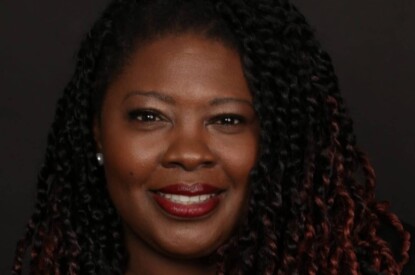Pulse
Anika Howard: Diversity is a Competitive Advantage
By William - 14 June 2022
Later this month, Anika Howard, President and Chief Executive Officer at Mashuntucket Pequot Tribal Nation’s newest venture, WONDR NATION, will take part in a discussion at the IAGA Summit examining diversity, equity and inclusion moderated by IGT’s Kim Barker Lee.
Ahead of the panel, Anika explains why an innate belief by many organisations that they do not have a “diversity problem” is their biggest hindrance.
At IAGA you will be taking part in a panel moderated by IGT’s Kim Barker Lee examining diversity, equity and inclusion. What are your expectations both for the summit and the discussion you’ll be taking part in?
I’m looking forward to connecting with industry professionals from around the world and hearing about how their priorities, approach and even focus has shifted as a result of all of the changes we’ve experienced in the last two years.
I’m excited to share the stage with my fellow panelists and my hope is that what we say or share resonates with at least one person, shifts their thinking or motivates them into action.
What are the benefits of a more diverse, equitable and inclusive workplace?
When a company embraces team members and leaders from different backgrounds, it benefits from a broader range of experiences, perspectives, and ideas. It creates a company culture that allows for more innovation and creative thinking. There is also the added benefit of team members working harder and smarter.
You can also connect with customers differently and more authentically because your workforce is more representative of the community you service. All these things ultimately translate to a more profitable and respected company.
What hurdles, perceptions or otherwise is hindering the recognition and acceptance of diversity’s benefits?
The innate belief by many organisations that they do not have a “diversity problem” is the biggest hindrance. Until companies see diversity as a competitive advantage and a core value – instead of an issue or problem to “fix” – it will always be a challenge for DEI initiatives to get traction and funding.
How can and should the gaming industry be looking to expand the number of voices at the table?
Being proactive and actively recruiting and engaging diverse professionals and organisations is a start. Many recent graduates and young executives are not aware of all of the opportunities this industry affords. Strategically recruiting at conferences and partnering with universities and organisations is one way to do this.
Establishing and supporting internal business resource groups to help people connect and be seen once they join the organisation is a good follow up. Finally, during succession planning and talent review, ensure that a diverse set of team members are included.
Does workplace diversity impact the authenticity of the customer experience?
Absolutely. Diverse and inclusive organisations make team members feel more welcomed and establishes a sense of belonging. Studies have shown that when team members are included and their voices are heard and considered within the organisation, they are less stressed, more motivated, and more collaborative.
This all translates into a better customer experience. Their positive attitude towards the company and their colleagues translates into positive interactions with guests.
Whilst strides have been taken in recent years to close the gender gap in the gaming industry, female representation is still relatively low, particularly in executive roles. How has the Mashantucket Pequot Tribal Nation (MPTN) addressed this and what more can the industry as a whole do to overcome this prevalent issue?
Many tribes are matriarchal by design and tribal casinos have a higher percentage of women in top positions in comparison to commercial non-tribal casinos and gaming entities. As the inaugural President and CEO for WONDR NATION – I’m a perfect example of what the Mashantucket Pequot Tribal Nation is doing to empower women leaders.
From recruitment to training and development, the Tribe is committed to ensuring the leadership teams of its entities are diverse and representative of the communities they serve.
I read a stat prior to the pandemic that women comprise approximately 50 per cent of the gaming workforce but only three per cent are in managerial roles. As an industry, we need to be more intentional about developing and promoting women. I’m on the Board of Directors of Global Gaming Women and we are committed to changing this dynamic.
Finally, are there any diversity, equity and inclusion initiatives that have caught your attention as sustainable and forward thinking?
I really like the work the All-In Diversity Project is doing. In 2018, Kelly Kehn and Christina Thakor-Rankin’s non-profit published their first All-In Index Diversity Index to provide organisations a simple way to bench mark their DEI progress year over year – and compare it to what others in the industry are doing.
I know they have plans to also benchmark gaming against other industries as well. This is a critical step, as it sets a baseline. As more organisations participate – we will see a much more wholistic view of DEI and the efforts that are needed.


